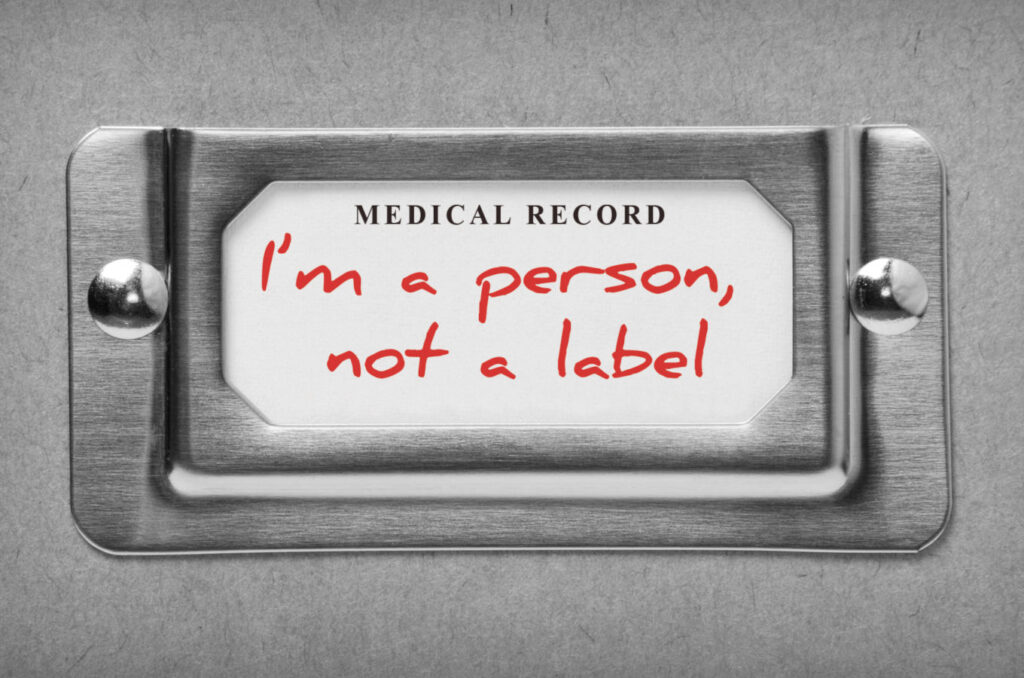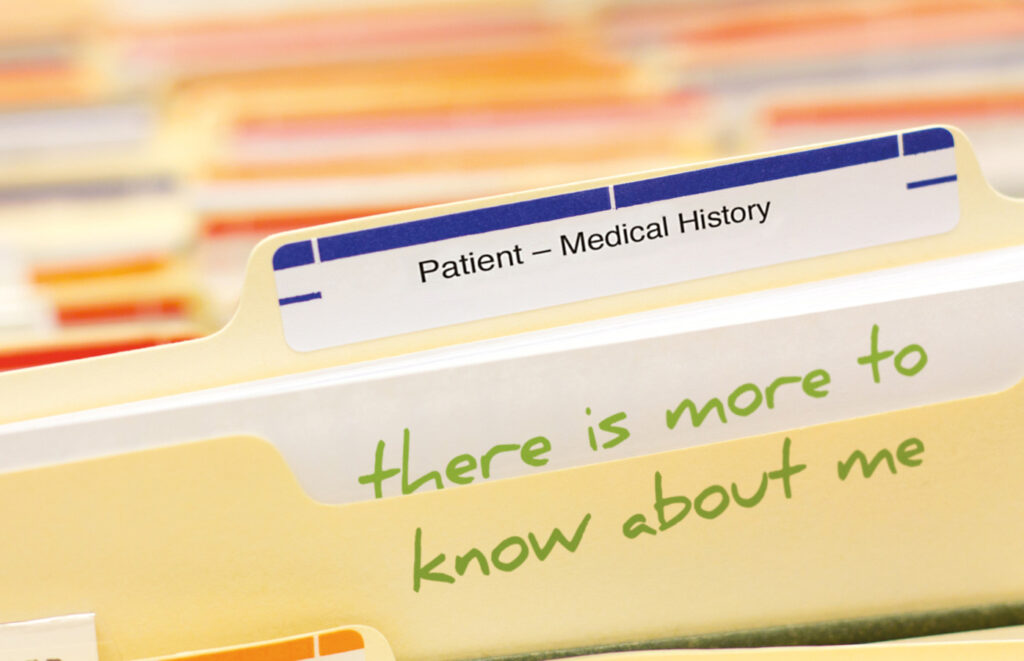My story (anonymous)
“I received a letter saying the psychiatrist agreed with my diagnosis. He’d never met me.”

Author wishes to remain anonymous
I was diagnosed with EUPD [Emotionally Unstable Personality Disorder] after one 50-minute session of CBT [Cognitive Behavioural Therapy]. No testing, no careful diagnosis.
The fact that I’d recently become seriously disabled, used all my savings for treatment, lost my career and my place in a PhD programme (2 years in), and been left by my partner of 6.5 years was ignored. Oh, and the chronic pain was ignored too.
Reasons [given] for diagnosis:
- Bisexual: identity confusion!
- Polyamorous (clinician had never heard the word before) [was considered to equal] promiscuous (which was evidence of impulsive behaviour, and unstable relationships
- Asked whether I thought I was smarter than average: [I said] yes (2 degrees from MIT, etc.). Nope, [this was considered] grandiosity. Turns out she didn’t believe that I had those degrees. Huh. (Grandiosity is not a symptom of EUPD.);
- I had been offered 8 sessions of CBT and had a long psych history and a traumatic childhood/teen years so in an effort to use my sessions efficiently, in the first one I summarized my personal history, family and previous psych treatments. This [was considered to be] “controlling the narrative” and “manipulating the clinician”. (Manipulativeness is NOT a symptom of EUPD.)
EUPD patients rarely accept the diagnosis – so me not doing so was more evidence that I had it.
I read up on it, came back, and listed the reasons I disagreed with the diagnosis, and the ways it didn’t fit me. At all. EUPD patients rarely accept the diagnosis, so that was more evidence that I had EUPD.
Asked for 2nd opinion. Waited months because no psychiatrist [was available]. Eventually received appointment letter. Soon after, I received a letter cancelling the appointment, saying that the psychiatrist agreed with the diagnosis (he’d never met me or spoken to me, just reviewed the notes), and terminating my psych prescriptions immediately (both required tapering to stop them!). I objected, but was ignored.
Complained to PALS [Patient Advice and Liaison Service], orally, then in writing. Prescriptions reinstated, but complaining was a clear sign of EUPD, apparently!
Meeting with CBT therapist [gave] 2 choices: accept the diagnosis and go into Complex Cases (EUPD) service, or I’d never receive any help from the Trust, ever again. I was very ill, traumatised, scared of my own mind, miserable, so I chose option 1.
So much more…
Speak your truth: your own experiences can help create change
If you want to share your experiences around this diagnosis you can take part in Platfform’s Truth Project.
Platfform are campaigning for a review of the use of the diagnosis of PD. Add your voice to our call for change by sharing your story. We will share these with Welsh Government and use them to strengthen our campaign.
For more information, and to access the survey, click here.
If you are in a mental health crisis, please read this paragraph
If you have been affected by anything in this story and would like to talk to someone you can call Samaritans on 116 123. You can also call the national mental health support line for advice on 111 (press 2.)


